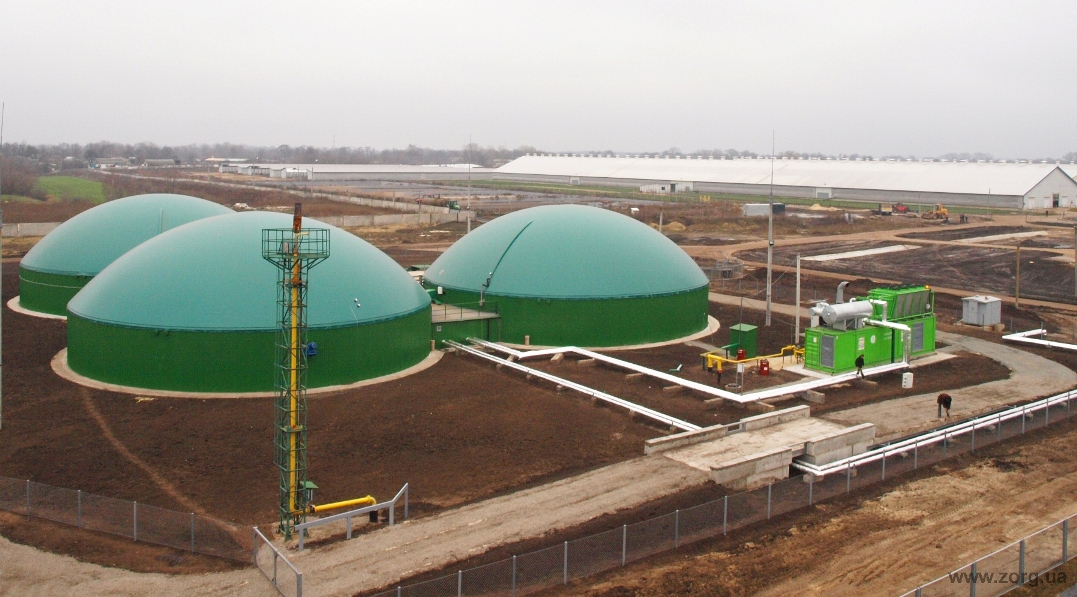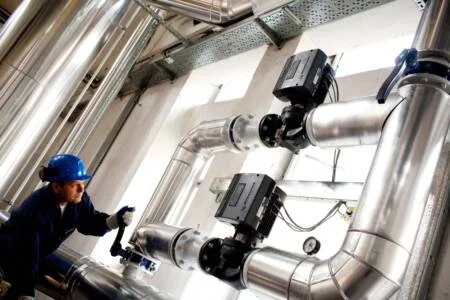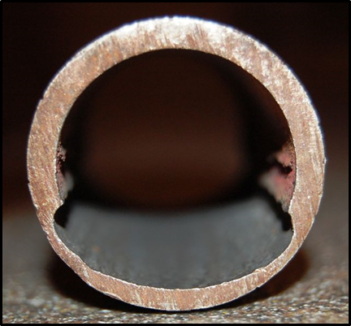Producer of Baby Nutrition Products Saving CO2 Based on Special “Green Tariff”
JENBACH, AUSTRIA [WorldofBioenergy.com]
Cow manure is being converted to energy at the first biogas cogeneration plant in the Ukraine. The facility, which is powered by 4,000 cows and a GE (NYSE: GE) Jenbacher gas engine, has recently completed nine months of successful operation at the Ukrainian Milk Company Ltd., located near Kiev.
The excess power produced at the plant is being sold to the grid. The Ukrainian Milk Company, which produces milk for baby nutrition products, received the license for selling power to the grid based on the “green” tariff, which is being approved by Ukraine authorities. According to the law, the “green” tariff is “a special tariff for electricity generated at the power plants with use of alternative energy sources.”
The new combined heat and power (CHP) plant is powered by a GE JMC 312 containerized cogeneration model gas engine and is able to substitute the equivalent of 1.2 million cubic meters of natural gas annually and, therefore, is projected to reduce the equivalent of 18,000 metric tons of CO2. Once converted into biogas, the manure from the cows produces 625 kW of electricity and 686 kW of thermal output.
This is GE’s first order from the biogas plant construction company ZORG. The unit was sold to ZORG through GE’s distributor and service provider in the Ukraine, SINAPSE. “Based on the top service provided by SINAPSE during the commissioning and operation of the new GE CHP plant, we look forward to working with them again and using GE’s Jenbacher products for future projects we have planned,” said Igor Aksyutov, commercial director of ZORG Ukraine.
The first stage of operation for the plant took place during the most severe winter in the last 20 years, with constant minus temperatures reaching -25°C to -30°C. Despite the cold temperatures, the operation of the plant remained at a favorable level.
Biogas offers customers several advantages. It provides an alternative disposal of dung, liquid manure and organic waste, while simultaneously harnessing them as an energy source, a substitute for conventional fuels. It also has the high potential for reduction in greenhouse gases and is highly efficient for combined on-site power and heat generation. In addition, the remaining substrate from the digester can be used as high-quality, agricultural fertilizer, characterized by neutralizing the acid effect with a higher ph-value, keeping nutrients retained and nearly odorless.
“The disposal and treatment of biological waste represents a major challenge for the waste industry. Our Jenbacher biogas-fueled gas engines improve waste management while maximizing the use of cow manure, an economical energy supply,” said Prady Iyyanki, CEO-gas engines for GE Power & Water. “We are pleased that our technology is a part of the first biogas plant in operation in the Ukraine and applaud the region for seeking new renewable and alternative ways to create cleaner energy.”
GE has several biogas projects throughout the world. China has adopted both cow and chicken manure applications. Once completed, the recently announced project at the Liaoning Huishan Cow Farm in China will become the world’s largest biogas project based on cow manure. In addition, GE’s Jenbacher gas engines are using biogas created from chicken manure to generate needed power and heat at the Beijing Deqingyuan Chicken Farm Waste Utilization Plant, a large chicken farm north of Beijing, and in July 2009, GE’s biogas engines began to power China’s largest chicken waste biogas-energy plant at the Minhe Animal Husbandry.
Cow manure also is helping to address northwestern India’s mounting energy environmental needs and is allowing a U.S. dairy farm to support the expansion of renewable energy production. A GE Jenbacher biogas engine is powering a successful demonstration cattle manure-methane cogeneration plant at Haebowal, a large dairy complex in Punjab, India, while GE’s biogas engine technology is generating 633 kilowatts of renewable energy at United States-based Crave Brothers Farm, LLC, in Waterloo, Wisc. Crave Brothers has been able to reduce operational costs and the environmental impacts of its dairy operations, and the surplus power it sells to the regional grid helps support the expansion of renewable energy production.
ZORG is a leading supplier of turn-key biogas solutions in the Ukrainian market. The company offers a full range of engineering services for biogas, as well as designs, builds and produces biogas plants. ZORG works globally and currently has a number of projects in CIS countries.
About GE
GE (NYSE: GE) is a diversified infrastructure, finance and media company taking on the world’s toughest challenges. From aircraft engines and power generation to financial services, health care solutions, and television programming, GE operates in more than 100 countries and employs about 300,000 people worldwide. For more information, visit the company’s website at www.ge.com.
GE serves the energy sector by developing and deploying technology that helps make efficient use of natural resources. With nearly 85,000 global employees and 2009 revenues of $37 billion, GE Energy www.ge.com/energy is one of the world’s leading suppliers of power generation and energy delivery technologies. The businesses that comprise GE Energy—GE Power & Water, GE Energy Services and GE Oil & Gas—work together to provide integrated product and service solutions in all areas of the energy industry including coal, oil, natural gas and nuclear energy; renewable resources such as water, wind, solar and biogas; and other alternative fuels.
For more information, contact:
Martina Streiter
GE
+43 5244 600 2470
+43 676 8944 2470
martina.streiter@ge.com
Gina DeRossi or Howard Masto
Masto Public Relations
+1 518 786 6488
gina.derossi@mastopr.com
howard.masto@ge.com









